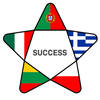Supporting success for all – Universal Design Principles in Digital Learning for students with disabilities

 SUCCESS Erasmus+
SUCCESS Erasmus+
Community [Reserved project] - Original editing language: English
from the Project Proposal
Project summary
During the COVID-19 crisis, across all countries, the situation of students with disabilities has been one of the most critical due to the need for rapid and radical changes in already complex circumstances. This project “Supporting success for all – Universal Design Principles in Digital Learning for students with disabilities” aims to support teachers and caregivers who work with students during lockdowns, when digital tools and distance learning are the only media available for attending classes and interacting with peers.
The support that the project will provide to stakeholders will consist of guidelines and a self-paced online-course based on principles of Universal Design for Learning (UDL) as well as an e-learning platform that can support the work of teachers and caregivers if needed.
The target groups in this project are teachers and caregivers. While in a School Education project, teachers are an obvious target group, our choice to also involve caregivers is justified by the specific challenges of online learning. In fact, especially in the case of students with disabilities, the role of a scaffolder at home who supports teachers’ efforts is central to ensure that students do not lose the improvements they made while at school.
The project does not intend to target a specific category of disability because, generally speaking, it is not feasible to gather students with only kind of disability: the choice is to cover clusters of special needs (e.g. automatic reading of texts on the screen) that are common for several categories of students that require accommodations, and not exclusively the students recognised by law as a “student with disability”. In fact, UDL is intended for all students, not just students with disabilities, so this project also provides implicit support to help all teachers in improving the quality of educational materials created ex-novo for digital learning.
The partnership is composed of six organisations from five countries. Coordinator is Poznan Supercomputing and Networking Center (PSNC), affiliated at the Institute of Bioorganic Chemistry of the Polish Academy of Sciences (Poland), which is one of the European National Research and Education Networks (NRENs) with an essential technological know-how and an important national network of schools. Moreover, PSNC will enable the project to start using an existing learning platform developed for the Horizon 2020 Up2U project for all European schools that is actually managed by PSNC. The platform is one of the key elements for the success of this project. In fact, the platform is already used in several schools in Europe (including all Up2U project countries), and the platform was developed with pan-European players such as GÉANT and CERN.
The other partners in this project are:
- Sapienza University of Rome (Italy), which is the biggest university in Italy and will participate in terms of know-how with his neuroscientific department and school teachers training programs as well as in technological terms for the production of digital materials.
- National Technological University of Athens (Greece) is one of the most important universities in Greece and has a strong profile in spreading the use of technology in schools adopting a pedagogy-based approach. During the H2020 Up2U project, NTUA built an important network with several schools that can be decisive in this type of projects.
- Instituto Politecnico do Porto - IPP (Portugal) has a central role in Portugal to combine technology and pedagogy with a relevant network of schools at local and national level. Its department of education will contribute greatly towards all the project’s pedagogical issues.
- Lithuanian University for Health Sciences (Lithuania) is the biggest health university in Lithuania and is strongly committed to training teachers and caregivers in how to use digital learning to support students with disabilities.
- Casa Santa Rosa (Italy) is one of the most important clinics in Italy for supporting people with disabilities and assists more than 150 children with disabilities, also supporting their caregivers.
The project workflow starts with a needs analysis and will implement the results by using a ready-to-use e-learning platform as a potential common reference, create educational materials, and provide self-paced online training courses targeting teachers and caregivers. All materials created by the end of the project will remain available, increasing the awareness of the range of possible solutions to help students with disabilities even in a lockdown situation, giving involved stakeholders an European dimension to their difficulties and providing ready-to-use solutions.

